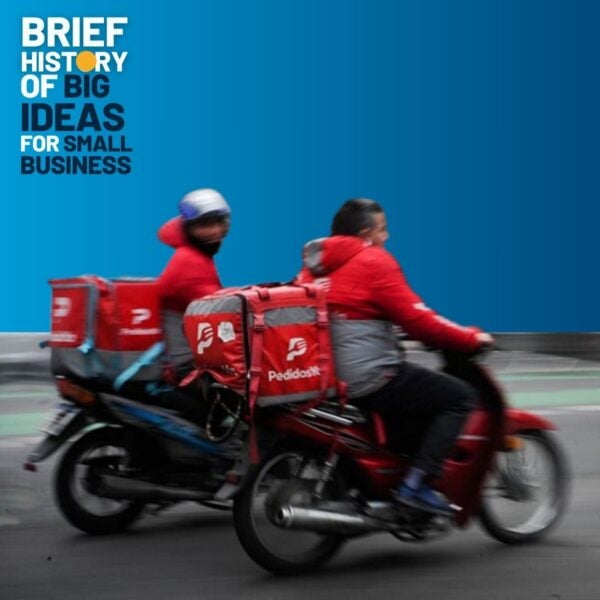
 The Digital Disruption
The Digital Disruption
Leveling the field, but at what cost?
In a modern Bangkok market, Somchai, a third-generation silk weaver, uploads photos of intricate designs created by her and the “Women of Ban Nong Haa”—a cooperative from a village in Northern Thailand that has gained international recognition for their unique designs and sustainable practices. Thousands of miles away, in Uruguay, Ariel Burschtin, Álvaro García and Ruben Sosenke, three students from Universidad ORT Uruguay obtained a seed grant to launch their platform “Pedidosya,” the first Latin American app-based service to sell food from restaurants to the customer’s doors. They’re riding the wave of the digital revolution, a tsunami of opportunity and peril for small businesses worldwide.

The internet, once hailed as the great leveler, has indeed opened doors. Somchai’s silk is now gracing homes in Paris and New York, while Pedidosya app became the poster child of small and growing business that, in the span of a few years, jumped from idea and micro business to gain traction among millions of customers across the globe. But this digital promised land isn’t all sunshine and rainbows.
The very algorithms that propel Somchai’s Etsy shop to the top of search results can just as easily bury it under a mountain of mass-produced knockoffs. Amazon, the behemoth of e-commerce, is both a lifeline and a competitor, offering small businesses a vast marketplace while simultaneously undercutting them with its own private label products.
Meanwhile, Pedidosya‘s reliance on freelance distributors, part of the burgeoning gig economy, provides them with flexibility but leaves thousands without the stability and benefits of traditional employment. And while globalization promises a world of customers, navigating the labyrinthine regulations of international trade is enough to make even the savviest entrepreneur dizzy.

In the tapestry of innovation, for every celebrated triumph, countless other endeavors starved of resources, deprived of prospects, and a supporting business ecosystem languishes in obscurity.
This is the digital tightrope on which small businesses now precariously balance. The tools of the 21st century offer unprecedented reach and potential, but they also demand new skills, constant adaptation, and a wary eye on the ever-shifting digital landscape. The algorithms that can make or break a business are often opaque and capricious, controlled by tech giants with interests that may not always align with those of the little guy.
The challenge, then, is not just to embrace the digital revolution but to master it. To harness its power without becoming its pawn. This requires a new breed of entrepreneur, one who is tech-savvy, globally aware, and fiercely protective of their brand. It demands a regulatory environment that fosters innovation while protecting against predatory practices.
It also defies the imagination of those stakeholders that cultivate business ecosystems. It demands a regulatory environment that fosters innovation while protecting against predatory practices. This is a call for a societal shift in how we value and support small businesses; how we nurture, finance and recognize them not just as economic engines but as cultural touchstones, sources of community pride, decent, sustainable jobs and, eventually, incubators of the next big idea.
The digital disruption is here to stay. Accelerated by the rise of Artificial Intelligence and the emerging promise of quantum computing, it’s a force that can either crush small businesses under its weight or catapult them to new heights. The choice, as always, lies in how we navigate this brave new world. Will we allow it to become a digital dystopia dominated by a few mega-corporations, or will we move in the direction of a diverse marketplace where small businesses can flourish, innovate, and continue to enrich our lives?
The answer, like the future itself, is yet to be written. But one thing is certain: the digital tightrope is getting narrower, and the stakes have never been higher.
